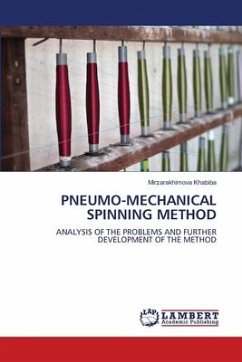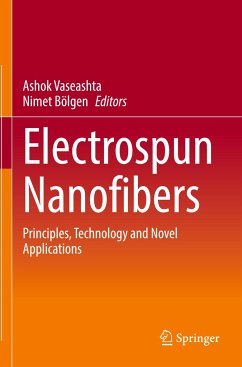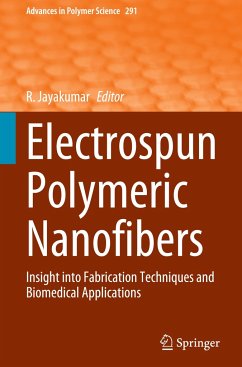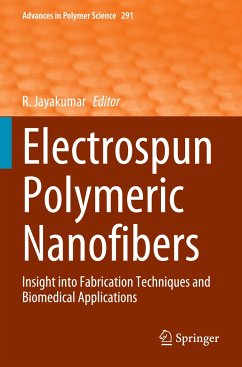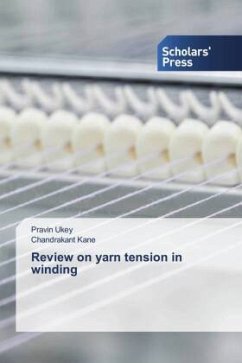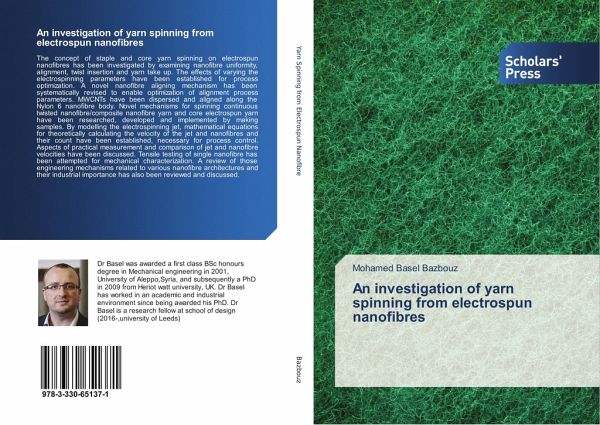
An investigation of yarn spinning from electrospun nanofibres
Versandkostenfrei!
Versandfertig in 6-10 Tagen
59,99 €
inkl. MwSt.

PAYBACK Punkte
30 °P sammeln!
The concept of staple and core yarn spinning on electrospun nanofibres has been investigated by examining nanofibre uniformity, alignment, twist insertion and yarn take up. The effects of varying the electrospinning parameters have been established for process optimization. A novel nanofibre aligning mechanism has been systematically revised to enable optimization of alignment process parameters. MWCNTs have been dispersed and aligned along the Nylon 6 nanofibre body. Novel mechanisms for spinning continuous twisted nanofibre/composite nanofibre yarn and core electrospun yarn have been researc...
The concept of staple and core yarn spinning on electrospun nanofibres has been investigated by examining nanofibre uniformity, alignment, twist insertion and yarn take up. The effects of varying the electrospinning parameters have been established for process optimization. A novel nanofibre aligning mechanism has been systematically revised to enable optimization of alignment process parameters. MWCNTs have been dispersed and aligned along the Nylon 6 nanofibre body. Novel mechanisms for spinning continuous twisted nanofibre/composite nanofibre yarn and core electrospun yarn have been researched, developed and implemented by making samples. By modelling the electrospinning jet, mathematical equations for theoretically calculating the velocity of the jet and nanofibres and their count have been established, necessary for process control. Aspects of practical measurement and comparison of jet and nanofibre velocities have been discussed. Tensile testing of single nanofibre has been attempted for mechanical characterization. A review of those engineering mechanisms related to various nanofibre architectures and their industrial importance has also been reviewed and discussed.





